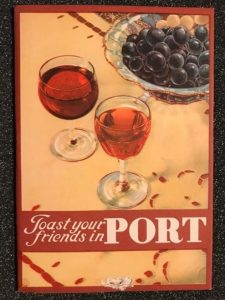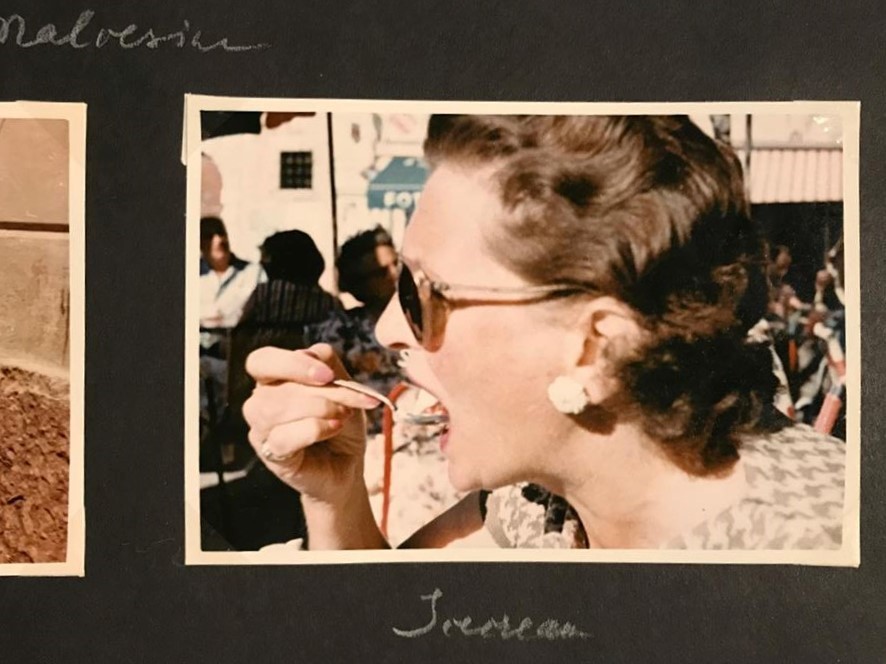
It could be said that nothing denotes sense of place quite like food. Eating local cuisine, an arguably essential part of travelling, is well documented in the Andor Kraszna-Krausz Archive here at the National Science and Media Museum.
Among Kraszna-Krausz’s personal archive, menus can be found alongside travel brochures, literature on European delicacies, motoring guides, language books and cruise leaflets which trace his travels across Europe in the 1950s. Particularly notable is the fold-out list of sandwich fillings from the Strandhotel, which promises the Danish flavours of smoked herring with yolk of egg and salted pickled herring on a choice of white, caraway or rye breads.
The focus and influence of culinary exploration in this part of the archive takes us on a journey of flavour alongside Andor, and often his wife Irma, Kraszna-Krausz.
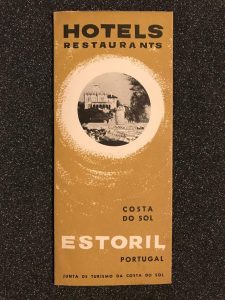
Andor Kraszna-Krausz was born in Szombathely, Hungary in 1904 and came to England in 1937 as a refugee. He founded Focal Press, which published affordable and practical guides to photography, in England in 1938. Focal Press publications were both accessible and informative, providing expert information in the fields of professional photography and image technology science. (You can see some of the iconic Focal Press covers in this blog post.)
Kraszna-Krasuz’s personal library, which contains many Focal Press titles, is now part of the National Science and Media Museum library. His library came to the museum alongside the Kraszna-Krausz Archive, comprising Focal Press items and his personal archive, of which the travel documents detailed here form a part.
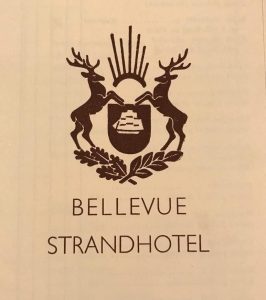
In addition to the sandwich menu from the Strandhotel, another Danish menu in the archive offers us Krebsehaler med Dildmayonnaise (crayfish with dill mayonnaise) and Fiskefrikadelle med Kapers (fishcakes with capers). These Scandinavian menus are accompanied by P&O guides to ports such as Helsinki and Stockholm and a First Class Cruising Plan for the TSS Arcadia, all grouped together in a P&O folder.
While Kraszna-Krausz explored Scandinavia by ship, he motored his way across Central and Western Europe. His motoring guides to Ireland, Spain, Portugal, and Italy, alongside a conversation in European languages handbook and Kraszna-Krausz’s international driving license, give us a glimpse of what it was like to drive across Europe in the mid-20th century.
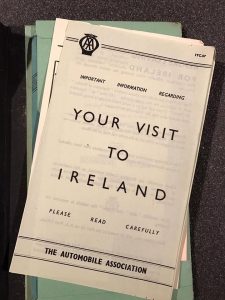
In a shamrock-green ‘AA motoring in Ireland’ folder, Kraszna-Krausz has kept receipts for hotels which break down his spending into dinner, coffee, ale and stout. Next we move South to the Mediterranean, where materials relating to Spain and Portugal explore the eateries and delicacies of these countries. Postcards denote typical restaurants, such as La Barraca in Madrid with its copper pans, beamed ceiling and terracotta floor, the tables invitingly laid with midsummer blooms. The volume of booklets on Portuguese wine reveal Kraszna-Krausz’s particular taste for port. Many of these publications are beautiful homages to its craft.
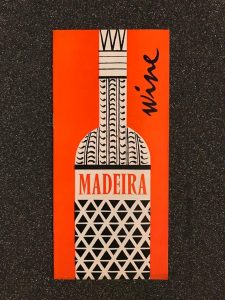
The archive also contains a homemade photography album containing personal photographs of Andor and Irma’s travels. We follow the couple from St. Moritz to Berlin, Venice, Spain, through the Black Forest and back to the English coast at Brighton and Blackpool.
These holiday snaps capture personal moments—lounging in vineyards and getting ready in hotel rooms alongside shots taken sightseeing and, of course, eating. There are a number of photographs at dinner, of waiting staff and of specific foods—notably the photograph simply entitled ‘ice cream’ (shown at the top of this post). The album lets us glimpse these everyday moments and reveals the small pleasures of discovery through travel.
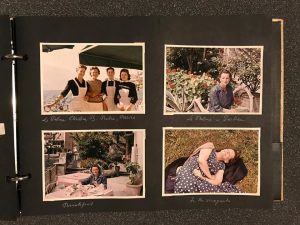
The Kraszna-Krausz Archive at the National Science and Media Museum is available to view by appointment.
